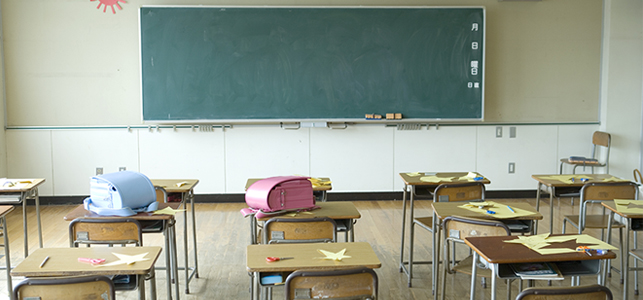5 tips for talking with kids when tragedy strikes
When tragedies occur, it’s often hard for adults to understand, much less explain the situation to our kids. It becomes especially difficult when other children are involved in horrific events like the most recent school shooting in Uvalde, Texas.
Our initial instincts urge us to shield our children from the pain and guard their safety. But what happens when those little eyes catch a glimpse of the television screen or older kids at school chat about the events? How much do we share, if anything, and what exactly is the best way to introduce children to the sometimes-painful real world without destroying their youthful innocence?
How to approach and address the subject of school shootings with kids

Helping a child deal with tragedy will differ depending on their unique developmental stage and level of understanding. Some kids may have a seemingly endless list of questions, while others may not want to discuss it at all. Some might pick up on the feelings of mourning around them, while others remain oblivious. Either way, parents are experts when it comes to knowing their children, including what information they can handle and how best to explain it.
You can start by asking what they already know about the situation and what questions they may have. For younger kids, keep your answers truthful but simple. Older children will typically begin seeking additional information and it’s best that they get it from trusted adults rather than the internet or rumor mill. In all cases, it’s a good idea to avoid graphic information and images.
Advice from a child and adolescent psychiatrist
Bela Sood, MD, child and adolescent psychiatrist and senior professor for child mental health policy at our Virginia Treatment Center for Children, is a leader when it comes to helping children face disasters. She played a key role on the review panel following the Virginia Tech massacre and has the following tips to help you talk to and protect your children during tragedies:
- Limit exposure
As a society, we have become glued to social and mainstream media, especially during tragic events. We carefully watch as the events unfold, grasping for the next breaking bit of information. Many of us have become numb to the images and often forget how traumatizing these visuals can be for children. Limit the amount of exposure your kids have to media coverage of a tragic event and limit your own exposure as well to reduce effects of the event.
If adolescents and teens request to watch news coverage, consider recording and previewing the contents before watching it with them. This article offers additional guidance on the values and hazards of media exposure.
- Watch and listen
If you notice changes in behaviors like sleeping patterns or eating habits, or if a child becomes particularly preoccupied with negative news or withdraws from activities they used to love, there’s a good chance something’s on their mind. Let them ask questions and share their feelings. Be open to those conversations and willing to lend an ear. If anxiety starts to affect a child’s daily routine, schoolwork or ability to have fun, it is a good idea to speak with your pediatrician and seek professional help.
- Be honest
Make sure you are open and honest with your children without oversharing. You can usually wait for them to bring it up, so as not to alarm them, but if you feel it is necessary to approach the topic, do so in a calm and reassuring way. Acknowledge the situation without spending too much time on it. Don’t act as though nothing happened or negate the impact but explain things to them in words they understand.
- Offer reassurance
When children are exposed to violence or tragedy, they often begin to think it could happen to them. Acknowledge that sometimes bad things happen but reassure them that what occurred is very unusual and is unlikely to happen to them. Emphasize the safety of the world, your community and your family, and remind them they are safe and loved.
- Find comfort in routines
It is important to address these events, but it’s also important to continue life and normal routines. While it may be difficult, your children can pick up cues from your emotional state, so try to curb your anxiety and stay positive. Routines can help both you and your child stay grounded while continuing to process what is happening.
Unfortunately, we can’t shield our children from the tragedies of the world, but we can help them understand these events and remind them they are loved and protected. If you notice your child has been affected by a tragedy, speak to your pediatrician for further advice and expert guidance.


